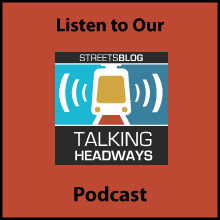National Links: Autonomous Buses and Sim City Planners
March 12, 2019
Each week we write a piece with the most interesting articles of the week for Greater Greater Washington and syndicate it to Urban Milwaukee and Streets.mn. We take the most clicked posts of the week from The Overhead Wire daily and write about the most interesting ones. Follow beyond the crease to
read up on some of this week’s most interesting pieces.
Singapore Preps Full Size Autonomous Buses: The Asian city-state of Singapore will soon begin trialing Volvo’s full-size electric autonomous buses at the campus of Nanyang Technological University. Singapore is aiming to operate scheduled services in residential areas away from the city center by 2022. Committed to launching autonomous public transit, it even built a mini town complete with intersections, bus stops, and pedestrian crossings to test driverless vehicles. (Kyunghee Park | Bloomberg)
Fight Sprawl to Fight Climate Change: One of the Green New Deal’s biggest failings is that it does not address sprawl. Greta Moran of Grist posits that climate change and infrastructure can no longer be tackled separately. Reducing sprawl encourages more sustainable forms of transportation, which is the largest contributor of US carbon emissions. By fighting sprawl, emphasis can be put on wetlands restoration and other forms of natural and green infrastructure to shield communities from natural disasters. (Greta Moran | Grist)
The Kings of Dallas Sprawl: North Texas top transportation officials, DART’s Gary Thomas and NCTCOG’s Michael Morris have held thier current leadership positions for 17 and 26 years resepectively. The duo have ushered in an unprecedented capital spending and construction spree of highways and light rail unseen in most of the country which has led to high population growth in the Dallas region. Unfortunately that growth has been anything less than compact. They aren’t retiring anytime soon, but with climate change coming thier ways will have to. (Peter Simek | D Magazine)
America Is Running on 80s Software: Across the US, capital expenses for large-scale physical infrastructure is easy to for politicians to run by the public, but modernizing technology is not generally seen as a top issue. For instance, access to rented cloud storage is considered a service, so it is paid for with operating funds, which also go to parks or police, instead of capital funding. Upgrading software is also incredibly costly; Minnesota spent a decade and $100M updating its vehicle-licensing software. NJ Transit relies on paper to procure equipment, and in Lawton, OK, municipal court records rely on typewriters. (Romy Varghese | Bloomberg)
The SimCity Generation: 30 years ago, Maxis released SimCity for Mac and Amiga. The successful franchise has since introduced millions of players to the joys (and frustrations) of zoning, street grids, and infrastructure funding. SimCity popularized the simulation genre, and some of its earliest players have contributed to a generation of city planners. However, its car-centric, single-use model is reminiscent of the Chicago School or Robert Moses. Just like its earliest players who are now real-world planners, the game’s developers are finding ways to incorporate features of more inclusive cities, like mixed land uses and alternative transportation modes. (Jessica Roy | Los Angeles Times)
Quote of the Week
“It’s undeniable that our cities are getting warmer, so we have to wonder how we can stop this trend. On the one hand, “The Coolest White” makes buildings more resilient and, on the other hand, can drastically reduce the urban heat load.”
Ben van Berkel of UNStudio talking about the paint color “coolest white” and how it can reduce the urban heat island in Arch Daily.







